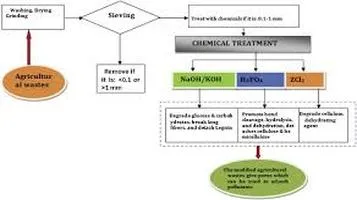Activated Carbon Filters: A Comprehensive Review
Activated carbon filters are highly effective filtration devices used to remove contaminants and impurities from air and water. These filters contain activated carbon, a form of carbon processed to have small, low-volume pores that increase its surface area, enhancing its ability to adsorb impurities. When air or water passes through the filter, the activated carbon captures pollutants, such as volatile organic compounds (VOCs), chlorine, sediment, and odors, by trapping them within its porous structure. Widely used in air purifiers, water purification systems, and industrial processes, activated carbon filters are valued for their efficiency in improving air quality and providing clean, safe drinking water. Their versatility and effectiveness make them a popular choice in both residential and commercial applications.

Activated carbon filters have established themselves as a fundamental component in various filtration systems, delivering unparalleled performance in purifying air and water. Widely used in residential, commercial, and industrial applications, these filters leverage the unique properties of activated carbon to remove contaminants, odors, and impurities. In this review, we delve into the mechanics, efficacy, applications, and overall value of activated carbon filters.
Mechanics and Functionality
Activated carbon, also known as activated charcoal, is a form of carbon that has been processed to have a highly porous structure. This extensive network of pores provides a large surface area, which is essential for adsorption—a process where molecules adhere to the surface of the adsorbent. The production of activated carbon typically involves carbonizing organic materials such as coconut shells, wood, or coal at high temperatures, followed by activation with gases to develop the porous structure.
The primary mechanism by which activated carbon filters operate is adsorption. As air or water passes through the filter, contaminants are trapped within the pores of the activated carbon. This process is highly effective for removing organic compounds, chlorine, sediment, volatile organic compounds (VOCs), and certain heavy metals. Moreover, the porous nature of activated carbon allows it to eliminate unpleasant odors and tastes, making it a versatile filtration medium.
Efficacy and Performance
The efficacy of activated carbon filters is largely dependent on the quality of the activated carbon, the surface area, and the contact time between the medium and the contaminant. High-quality activated carbon with a larger surface area will generally provide better adsorption capabilities. Additionally, a longer contact time allows for more thorough removal of contaminants.
Activated carbon filters excel in removing a wide range of pollutants. In water filtration systems, they effectively reduce chlorine, which is commonly used in municipal water treatment but can impart an undesirable taste and odor. Furthermore, they remove organic chemicals such as pesticides, herbicides, and pharmaceuticals, which are increasingly becoming a concern in water supplies. For air purification, these filters can eliminate common indoor pollutants like tobacco smoke, cooking odors, and chemical fumes from household products.
However, it is important to note that while activated carbon filters are highly effective at removing certain contaminants, they are not a one-size-fits-all solution. They are not particularly effective at removing inorganic pollutants such as nitrates, fluoride, and certain heavy metals like lead and arsenic. Thus, they are often used in conjunction with other filtration technologies to provide comprehensive purification.
Applications and Versatility
The versatility of activated carbon filters allows them to be utilized in a wide array of applications. In residential settings, they are commonly found in water pitchers, under-sink filtration systems, refrigerator filters, and whole-house water filters. They are also prevalent in air purifiers, HVAC systems, and range hoods. The ability to improve water and air quality makes them indispensable for maintaining a healthy living environment.
In commercial and industrial contexts, activated carbon filters are used in water treatment plants, wastewater management, and industrial air purification systems. They play a crucial role in reducing emissions and ensuring that water discharged from industrial processes meets regulatory standards. Additionally, they are employed in the food and beverage industry to improve the taste and safety of products.
Maintenance and Longevity
One of the key considerations when using activated carbon filters is maintenance. Over time, the pores of the activated carbon become filled with contaminants, reducing the filter's effectiveness. Regular replacement or regeneration of the filter is essential to maintain optimal performance. The frequency of replacement depends on the level of contamination and usage. For instance, a water filter in a household with high chlorine levels may need to be replaced more frequently than one in an area with relatively clean water.
Activated carbon filters are generally easy to replace, and many systems are designed with user-friendly features to facilitate maintenance. Some advanced systems even include indicators to alert users when it is time for a replacement. While there is an ongoing cost associated with replacing filters, the benefits of improved water and air quality often outweigh the expense.
Conclusion
Activated carbon filters stand out as a powerful and versatile solution for improving water and air quality. Their efficacy in removing a broad spectrum of contaminants, coupled with their widespread applicability, makes them a valuable addition to both residential and industrial filtration systems. While they are not without limitations, their ability to significantly enhance the taste, odor, and safety of water and air ensures their continued relevance in the filtration landscape.
For those seeking a reliable and effective means of purification, activated carbon filters offer a proven and trusted option. Regular maintenance and an understanding of their capabilities can maximize their benefits, ensuring a healthier and more pleasant living and working environment.






